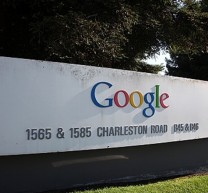Latest "Online Privacy" Posts
2 Truths & a Lie: Venture Capital Frenzy Misses Cyber Security Mark
 USA Today recently opined that the venture capital flooding into the cyber security marketplace is justified. Unlike the dotcom boom and bust cycle of the late 90s, it says, the current spending on securing information capital is justified, as the Internet and corporate networks are in dire need of better protection. Without even a moment’s hiccough, this is undeniably true.
USA Today recently opined that the venture capital flooding into the cyber security marketplace is justified. Unlike the dotcom boom and bust cycle of the late 90s, it says, the current spending on securing information capital is justified, as the Internet and corporate networks are in dire need of better protection. Without even a moment’s hiccough, this is undeniably true.
Take some recent cases in point: China hacking into the New York Times and Wall Street Journal, or the Syrian Electronic Army cracking into the Associated Press and 60 Minutes. If you’re looking for corporate examples, look no further than the $45 million stolen by cyber thieves via MasterCard pre-paid debit cards. Cyber security is the new darling of the Obama administration, the media and Sandhill Road because all three are finally learning how much they have to lose (or in the case of VCs, gain) by ignoring cyber security.
Are Millennials ignoring online privacy protection?

The Millennial generation tends to have a lax approach to online privacy protection – and it might put all of our security in jeopardy.
Those in their teens, 20s and early 30s – the “Millennials” – have widely prompted discussions as they enter and redefine the modern workplace. Recent information gives us a more in-focus picture of the general operating philosophy of this age group when it comes to handing out personal information over the internet. It’s been found that a devil-may-care attitude is much too prevalent.
A survey from the University of South California’s Annenberg Center for the Digital Future revealed that more than half of the Millennials it questioned would willingly give their personal information to companies in exchange for some sort of coupon or incentive. And then a disconnect occurs because the same study interestingly showed that 70 percent of those same Millennials believed their personal data should be kept private.
A Darker Google: Shodan displays corporate internet privacy weaknesses

When was the last time you checked the internet privacy settings on your photocopier? Chances are your office is more vulnerable than you think.
The search engine Shodan, in operation since 2009, allows anyone to search for all of the public devices we leave connected to the internet around the clock. In addition to desktop computers and laptops, this includes printers, photo copiers, webcams, and more sophisticated equipment like traffic lights, nuclear power plants, air control towers and the electricity grid.
Imagine the prospect of someone gaining access to Laguardia’s air traffic control or Chicago’s power grid because of an unprotected network scanner that is connected to their larger network. Shodan helps hackers find those lonely, forgotten network devices so that they can be used as a back door to breach sophisticated systems.
Twitter privacy expert John Sileo talking with 9News on the AP hack
This Tweet disrupted the stock market as well as gold and oil prices: “Two explosions in the White House and Barack Obama is injured”.
Online identity nightmare: will Twitter meet the challenge? Will we?

The jaw-dropping attack on the Associated Press last week may finally cause Twitter to start safeguarding our online identity – and it may even jolt us out of our apathy.
We’ve seen serious Twitter breaches for months. Hackers have damaged the digital reputations of major corporations and cultural groups. But Tuesday, the whole world was jolted when hackers falsely sent an AP tweet reporting that there had been two explosions at the White House. Within seconds, investors unloaded $139 billion worth of stocks, as reported by AP. Not all those investors were human; many were computers on autopilot doing high-speed trading. But the consequences are just as real and far reaching.
Online privacy alert: Who’s reading your Gmail? It might be the FBI

Everybody knows that online privacy is in the eye of the beholder. Just as the government is working toward lessening attacks on our internet from other countries, the FBI is stepping up its game on the home front – and it wants to look at your Gmail when you send it.
So much of preventing the unwanted use of your data is simply knowing that you are being watched online by others. The FBI already has the ability to check copies of messages sent through Gmail and other providers after the fact, but it wants more: the chance to monitor such interactions as they are happening. Andrew Weissmann, the organization’s general counsel, has asserted that live online services of many different kinds are being used to perpetrate illegal purposes, requiring more surveillance. And the feds are not stopping there, also championing to gain access to messages sent on iPhones.
Data privacy not really a big part of Big Data

Big Data is an economic juggernaut as well as a ripe opportunity to forfeit your profitable data privacy. Businesses and consumers should consider the potential costs – and what they hope to get in return.
Not so long ago, the internet was a very different place. Users were advised never to give out their names or addresses, to avoid talking to people they don’t know and to keep all personal identifiers secret. Data privacy was something we were thinking about constantly, especially when it came to sensitive information. Cyberspace was thought first and foremost to be a place filled with strangers where we must tread with caution.
Today, we’ve swung too far in the other direction. We all but depend upon the internet to connect, to make ourselves public, to be seen by as many people as possible all over the world. Entire sites exist to promote us, and the sort of things we used to carefully consider before disclosing, we now sign away without a second thought, completely unaware of what we are putting on display.
Google drove by your house and took down your information without you knowing…

It's not just hackers that make a habit of scooping your information. Google has had a notoriously dodgy record when it comes to user internet privacy – and some think it might have finally gone too far.
At this point, most of us accept that the marketplace is watching us all the time, or else we remain blissfully ignorant. Ads that respond to your browsing history are one thing, though: a company driving through your neighborhood and stealing your data is another. Thirty-eight states brought a case against the internet search giant recently for violating data privacy. Google has been charged a $7 million fine and will supposedly take efforts to stay further from user information. In the meantime, this action should serve as a reminder of how available your passwords, email conversations, and messages are.








